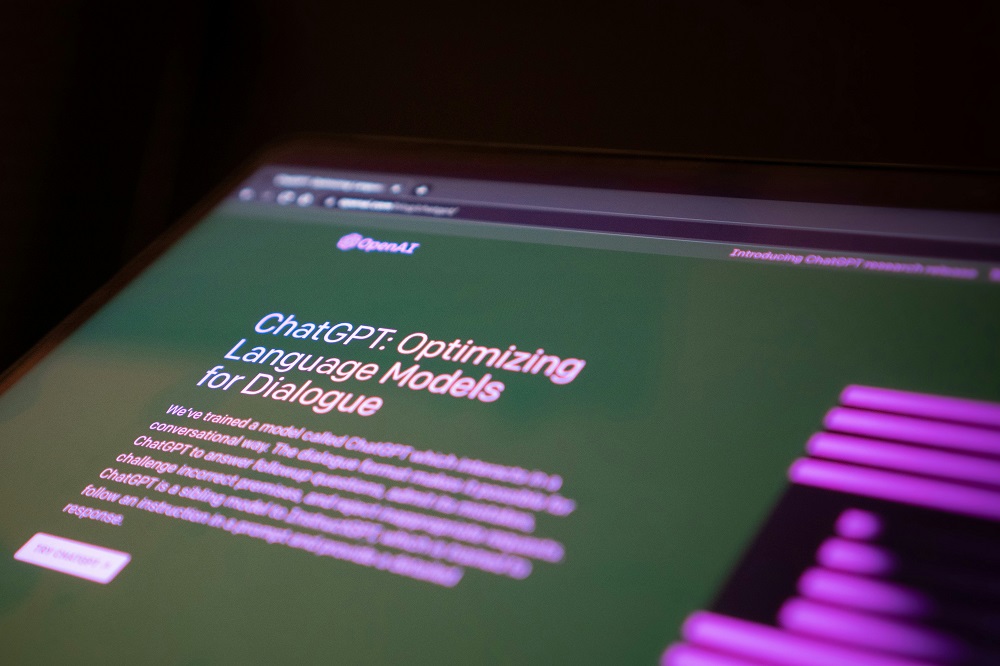In the last few years, artificial intelligence (AI) and machine learning systems have been transforming the landscape of market research. Understanding the origins and development of ChatGPT is crucial to appreciate its role. The technological advances of ChatGPT have led organizations to experience tremendous advancements in chatbot technology.
However, in the real world, AI can never be considered completely unbiased. AI modes can be as good as data that is used to train the systems. There is a possibility of infiltrating numerous human biases. The ongoing identification of new biases constantly increases the number.
Conversational AI, like ChatGPT, has made significant progress, but several challenges and limitations still need to be addressed. With ChatGPT emerging as a notable AI language model, some existing problems regarding conversational AI that ChatGPT can work towards solving:
- maintaining context
- personalization
- common sense reasoning
- emotional intelligence
- ethical considerations
- robustness and security
- real-time, multi-modal interactions
- scalability and efficiency
Read more: Mirror of Reality: The Rise of Deepfakes and Its Ethical Impact
ChatGPT is a powerful language model that is integrated across different operations to generate text, translate languages, and answer questions comprehensively and informally.
However, like any AI model, ChatGPT has its limitations.
Limitations of ChatGPT
-
Contextual Understanding
One significant limitation of ChatGPT is its struggle to maintain context over extended conversations. This often results in responses that appear unrelated or inconsistent. Users need to be mindful of this limitation during prolonged interactions.
-
Sensitive Content Handling
ChatGPT can generate inappropriate or biased responses when confronted with controversial topics. Despite efforts to filter such content, users must exercise caution as well as consider the impact of the generated responses.
-
Ambiguity
When faced with unclear queries, the ChatGPT model can produce ambiguous or vague responses. Therefore, users need to provide additional context or ask more specific questions to obtain relevant information.

The Challenge of ChatGPT to Humanity
-
Ethical Considerations
Deploying ChatGPT raises ethical concerns about the responsible use of AI. Users need to be cautious not to misuse the technology for malicious purposes or to generate harmful content. Striking the right balance between innovation and ethical considerations is an ongoing challenge for ChatGPT.
-
Biases
AI models like ChatGPT inadvertently perpetuate and amplify biases due to the training data. Recognizing and addressing these biases is also an ongoing challenge. Developers are also actively working to improve fairness and inclusivity in ChatGPT's responses.
Read more: Data Monetization: Turning Data Streams into Gold with Analytics
Overcoming Challenges in Real-World Applications
There are several ways to overcome ChatGPT's challenges and limitations. These are as follows:
- Be aware of the potential bias: It is important to be conscious of the potential for bias in ChatGPT. Taking the right steps to mitigate them, including adversarial training or fairness filtering and using a diverse dataset to train ChatGPT, will further help reduce biases across systems.
- Check for accuracy: ChatGPT cannot always be accurate. It is, therefore, important to check the accuracy of its responses and verify the information with other sources before using them
- Providing right context: ChatGPT often faces difficulty in understanding the context of a conversation. Hence, it is important to feed it with as much context as possible. This will help ChatGPT to generate accurate and relevant responses.
- Using ChatGPT with other tools: ChatGPT is a powerful tool, but it is not perfect. It is therefore advised to often use ChatGPT with other conversational AI tools or search engines and fact-checking tools, to get accurate results.
- Using a different language model: Another way to overcome the limitations of ChatGPT API is to use a different language model. Several other language models are available, such as GPT-Neo and Bard, as these language models may not have the same limitations.
The Importance of Fairness in AI Models
Artificial intelligence today has become a critical component of technology and our daily lives. It is also having a transformative impact on different industries, ranging from healthcare to finance. At the same time, it is critical to reflect on the importance of fairness in AI to ensure responsible algorithm development. AI algorithms should not fall victim to concerns emerging from bias.
AI biases can emerge as systematic or unwanted discrimination against specific groups or individuals. Users can encounter problems due to bias in different stages of the AI lifecycle, including data collection, pre-processing, algorithm design, and decision-making. In addition, bias in AI systems can also emerge from societal biases and historical discrepancies.
Read more: Google Search and Generative AI: Navigating the Paradigm Shift
AI and machine learning algorithms are futuristic technologies that are changing the traditional perspectives on how technology serves every aspect of business operations. However, addressing questions like “Why is fairness in artificial intelligence important?” helps identify the potential challenges of AI and ML algorithms.
Fairness is important as it helps in building responsible and ethical systems. Users will not trust an AI system that brings biases into the equation for delivering responses. Unintentional discrimination against individuals or groups in AI algorithms is one of the foremost reasons for focusing on fairness in AI.

Key Takeaways
- ChatGPT may struggle to maintain context in extended conversations, thus resulting in inconsistent or unrelated responses.
- Users need to be cautious as ChatGPT is likely to generate inappropriate or biased responses when faced with sensitive or controversial topics.
- The ChatGPT model produces ambiguous or vague responses, necessitating users to feed additional context or ask more specific questions for clear responses.
- The deployment of ChatGPT poses ethical challenges, encouraging users to prioritize responsible use and prevent misuse.
- Ongoing efforts are critical to identify and address biases in ChatGPT, ensuring fairness and inclusivity.
- Users of the ChatGPT API can encounter rate limits and usage policies affecting their service accessibility. Robust security measures are essential to address the data privacy concerns for handling sensitive information.
Read more: Navigating the Digitization Paradox: Balancing AI And Personal Touch in the Age of Automation
Final Thoughts
Today, the rise of conversational artificial intelligence (AI) has onset a new revolution in the field of technology. However, it is important to address the concerns about fairness in artificial intelligence algorithms before considering the data sets for broader adoption of AI. Therefore, it is important to integrate ideal solutions to resolve these AI biases and challenges.
Machine learning and artificial intelligence are embedded across different systems and applications that help users shop online or listen to music. AI and machine learning help businesses streamline massive data collections and extract relevant recommendations according to personalized preferences. However, bias in the training data can also lead to unfair practices by AI systems.
By understanding the value of ethical and responsible AI, organizations can ensure compliance with principles for fairness in AI.
A leading enterprise in Generative AI solutions, SG Analytics focuses on unlocking unparalleled efficiency, customer satisfaction, and innovation for the client with end-to-end AI solutions. Contact us today to harness the immense power of artificial intelligence and set new benchmarks in operational efficiency, customer satisfaction, and revenue generation.
About SG Analytics
SG Analytics (SGA) is an industry-leading global data solutions firm providing data-centric research and contextual analytics services to its clients, including Fortune 500 companies, across BFSI, Technology, Media & Entertainment, and Healthcare sectors. Established in 2007, SG Analytics is a Great Place to Work® (GPTW) certified company with a team of over 1200 employees and a presence across the U.S.A., the UK, Switzerland, Poland, and India.
Apart from being recognized by reputed firms such as Gartner, Everest Group, and ISG, SGA has been featured in the elite Deloitte Technology Fast 50 India 2023 and APAC 2024 High Growth Companies by the Financial Times & Statista.









